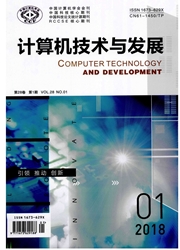

 中文摘要:
中文摘要:
This work investigates a simple and practical bio-immune optimization approach to solve a kind of chance-constrained programming problem without known noisy attributes, after probing into a lower bound estimate of sample size for any random variable.Such approach mainly consists of sample allocation, evaluation, proliferation and mutation. The former two, depending on a lower bound estimate acquired, not only decide the sample size of random variable and the importance level of each evolving B cell, but also ensure that such B cell is evaluated with low computational cost; the third makes diverse B cells participate in evolution and suppresses the influence of noise; the last, which associates with the information on population diversity and fitness inheritance, creates diverse and high-affinity B cells. Under such approach, three similar immune algorithms are derived after selecting different mutation rules. The experiments, by comparison against two valuable genetic algorithms, have illustrated that these immune algorithms are competitive optimizers capable of effectively executing noisy compensation and searching for the desired optimal reliable solution.
 英文摘要:
英文摘要:
This work investigates a simple and practical bio-immune optimization approach to solve a kind of chance-constrained programming problem without known noisy attributes, after probing into a lower bound estimate of sample size for any random variable. Such approach mainly consists of sample allocation, evaluation, proliferation and mutation. The former two, depending on a lower bound estimate acquired, not only decide the sample size of random variable and the importance level of each evolving B cell, but also ensure that such B cell is evaluated with low computational cost; the third makes diverse B cells participate in evolution and suppresses the influence of noise; the last, which associates with the information on population diversity and fitness inheritance, creates diverse and high-affinity B cells. Under such approach, three similar immune algorithms are derived after selecting different mutation rules. The experiments, by comparison against two valuable genetic algorithms, have illustrated that these immune algorithms are competitive optimizers capable of effectively executing noisy compensation and searching for the desired optimal reliable solution.
 同期刊论文项目
同期刊论文项目
 同项目期刊论文
同项目期刊论文
 Artificial immune system in dynamic environments solving time-varying non-linear constrained multi-o
Artificial immune system in dynamic environments solving time-varying non-linear constrained multi-o Danger theory based artificial immune system solving dynamic constrained single-objective optimizati
Danger theory based artificial immune system solving dynamic constrained single-objective optimizati 期刊信息
期刊信息
